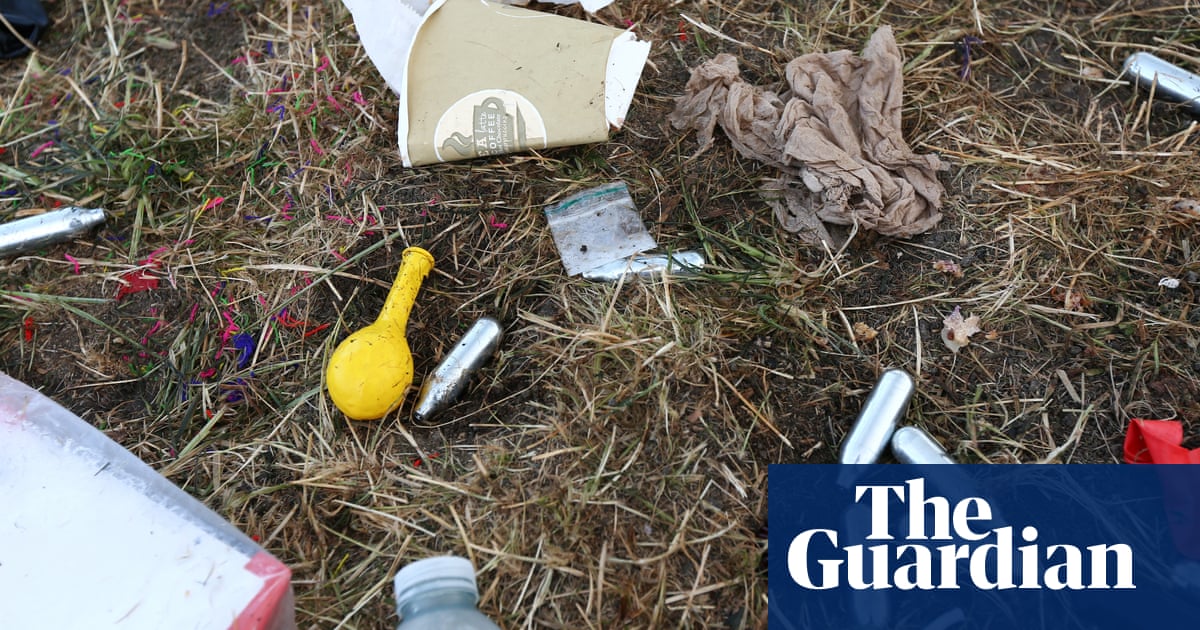
Ministers should expand anonymous drug testing at festivals and allow supervised drug-taking facilities to reduce the risk of fatal overdoses and infections, an influential parliamentary committee has concluded.
In a report that urges the government to focus on public health rather than “an abstinence-only approach”, the home affairs select committee calls for a national drug-checking service to anonymously test drugs and a licensing scheme for onsite drug-testing facilities at festivals.
MPs on the cross-party body have also asked for legal clarity on “safe spaces”, where regular users can take substances in safe surroundings, and for the government to draw up laws to allow their expansion.
The Scottish government is pressing for a so-called safe consumption facility to be set up, but their efforts have thus far been blocked by Westminster.
Artists including Fatboy Slim have criticised the Home Office for effectively blocking the testing of drugs bought by some festivalgoers during the summer.
The committee chair, Diana Johnson, said the government’s drug strategy required much more meaningful action to tackle the broad range of drug-related problems.
“We need to have the right interventions in place to help people break free from the terrible cycles of addiction and criminality that drug addiction can cause. Simply attempting to remove drugs from people’s lives hasn’t worked,” she said.
“Over the course of the inquiry, we have seen a number of positive, locally developed schemes make a real difference to those suffering from addiction and the wider communities. The government should learn from the success as it develops best practice that can be implemented nationwide.”
The report examined the government’s latest drugs strategy, “From harm to hope: A 10-year drugs plan to cut crime and save lives” and concluded that it signalled a shift towards supporting people who use drugs, their loved ones and society.
“However, the government’s response could go further by adopting a broader range of public health-based harm reduction methods in tandem with its support of law enforcement efforts to tackle the illicit drugs market,” it said.
Drug laws must be reformed, MPs said, as they recommended greater testing at festivals and the use of safe spaces across the UK for users to take substances under medical supervision.
“A national drug checking service in England could enable people to anonymously test samples of drugs, again preventing harm and potentially death. We recommend the government establish a drug-checking service,” the report said.
“We also recommend the expansion of onsite drug checking services at temporary events such as music festivals and in the night-time economy through the creation of a dedicated licensing scheme. The power to issue such licences could include the devolution of power to grant licences to local authorities.”
Last month, Norman Cook – who performs as Fatboy Slim – and the musicians Billy Bragg and Olugbenga Adelekan, the bassist of Metronomy, called for the government to allow the resumption of tests of confiscated pills in tents and temporary buildings at festival sites. They spoke out after the Guardian revealed that the Home Office had told organisers of the Parklife festival in Manchester that for the first time since 2014 they would not be able to check for dangerous drugs without a special licence.
The committee’s report also recommended that the UK should support a “safe consumption” pilot in Glasgow. MPs said the pilot “must be evaluated in order to establish a reliable evidence base on the utility of a safe consumption facility in the UK”.
More widely, the committee said both the Misuse of Drugs Act 1971 and the Misuse of Drugs Regulations 2001 require reform.
It said: “We recommend that the UK government reform the 1971 act and 2001 regulations in a way that promotes a greater role for public health in our response to drugs, while maintaining our law enforcement to tackling the illicit production and supply of controlled drugs.”
The report also recommended that the Home Office and Department of Health and Social Care “jointly establish a national drug-checking service in England to enable people to submit drug samples by post anonymously”.
They said a UK-wide drug checking service would be the most effective approach, encouraging the UK and devolved governments to “consider jointly establishing such a service”.
MPs welcomed the UK government’s “commitment to reducing barriers to researching psychedelic drugs” and recommended they are “urgently” reclassified “in order to facilitate research on the medical or therapeutic value of these drugs”.
A Home Office spokesperson distanced the government from the committee’s recommendations on safe spaces. “There is no safe way to take illegal drugs, which devastate lives, ruin families and damage communities, and we have no plans to consider this.
“Our 10-year drugs strategy set out ambitious plans, backed with a record £3bn funding over three years, to tackle the supply of illicit drugs through relentless policing action and building a world-class system of treatment and recovery to turn people’s lives around and prevent crime,” he said.












